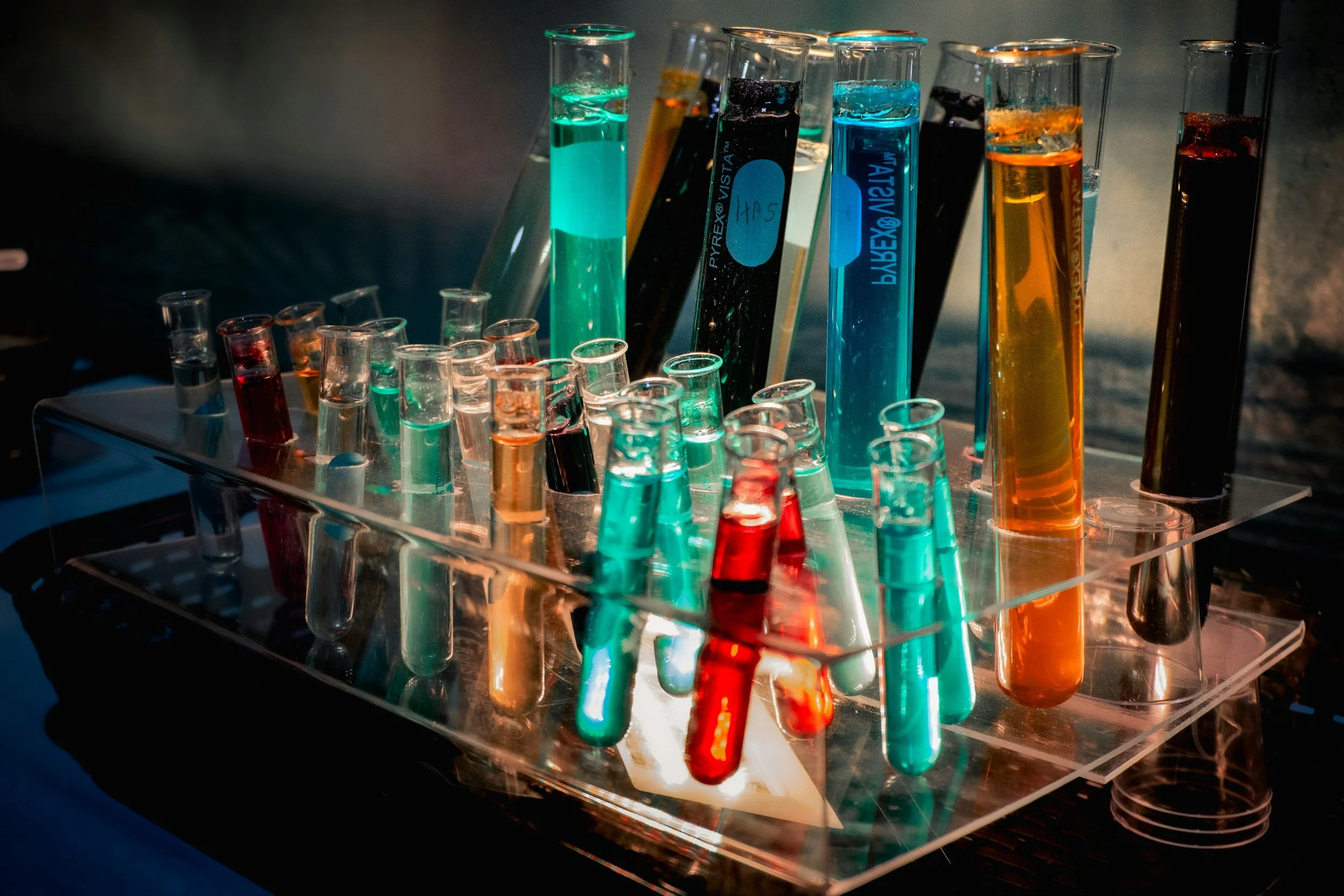What’s Really in Your Feminine Care Products? 5 Ingredients to Avoid
Have you ever flipped over the label on your feminine wash, bath soak, or vaginal spray — and realized you didn’t recognize a single ingredient?
You’re not alone.
Most mainstream vaginal and feminine care products are packed with chemicals that do more harm than good — disrupting your pH, irritating your skin, and disconnecting you from your sacred center. But there’s a better way. A cleaner, safer, womb-conscious way.
In this post, I’m sharing five ingredients to avoid in your feminine care routine — and offering you an invitation to start creating your own natural products rooted in ancient wisdom.
1. Fragrance (aka “Parfum”)
Fragrance sounds innocent — but it's often a chemical cocktail of hundreds of undisclosed ingredients. These can include allergens, hormone disruptors, and synthetic toxins that throw your vaginal flora off balance.
💡 Why it’s harmful:
Your yoni doesn’t need to smell like flowers, candy, or a perfume counter. Adding artificial scent can irritate delicate tissues, cause itching, and even increase the risk of infections.
2. Sodium Lauryl Sulfate (SLS)
SLS is a foaming agent found in soaps and shampoos — and unfortunately, in many “feminine” products too. It strips away natural oils, dries out the skin, and creates microtears that make you more susceptible to irritation.
💡 Why it’s harmful:
The vulva needs gentle, non-stripping cleansers. SLS can disrupt the delicate moisture balance and cause sensitivity, dryness, and discomfort.
3. Parabens (Methylparaben, Propylparaben, etc.)
Parabens are chemical preservatives used to prolong shelf life. They’re also known hormone disruptors that mimic estrogen and have been linked to reproductive harm.
💡 Why it’s harmful:
Your womb and hormonal system work together. Constant exposure to parabens can interfere with your body’s natural rhythms, especially when applied near or inside the vaginal canal.
4. Triclosan
Often found in “antibacterial” feminine wipes and washes, Triclosan is a harsh antimicrobial agent that’s been banned in hand soaps — but still appears in intimate care products.
💡 Why it’s harmful:
It kills both bad and good bacteria, which disrupts your vaginal microbiome. This can lead to BV, yeast infections, and overall imbalance.
5. Alcohol-Based Preservatives
Alcohol can act as a preservative — but in vaginal care, it’s often far too drying and irritating.
💡 Why it’s harmful:
It disrupts your skin’s protective barrier and causes burning, dryness, and discomfort. You deserve gentle, nourishing ingredients — not harsh chemicals.
So What’s the Alternative?
Creating your own natural feminine care products at home is not only safer — it’s empowering, ancestral, and deeply sacred.
By choosing womb-safe herbs and ingredients like:
Calendula
Chamomile
Apple cider vinegar
Aloe vera
Lavender
…you can build a ritual that supports your body’s wisdom — not works against it.
Ready to Start Making Your Own Yoni Products?
I created a free resource just for you:
📘 Free eBook: Learn How To Start A Natural Feminine Care Business!
Whether you want to care for yourself, your clients, or your community — this guide will walk you through the essentials.
👉🏽 Download the Free eBook Here
Final Words
Your womb is sacred. The products you use to care for her should be too.
Start slow. Read labels. Trust your intuition.
And if you’re feeling called to make your own, I promise — your future self (and your womb) will thank you.
With Guidance & Love,
Ciara Love

